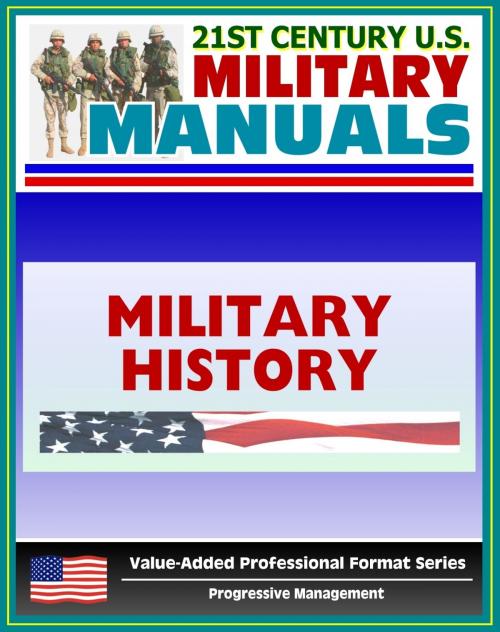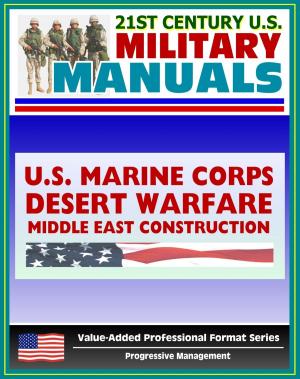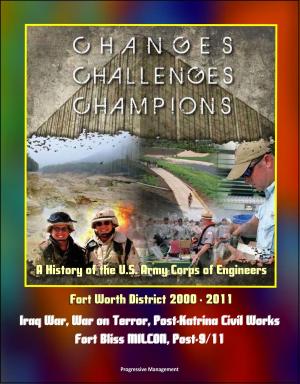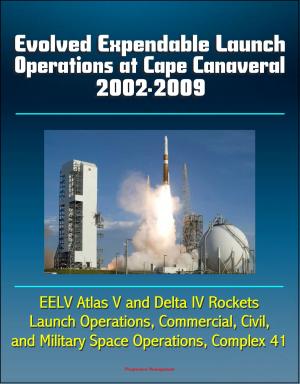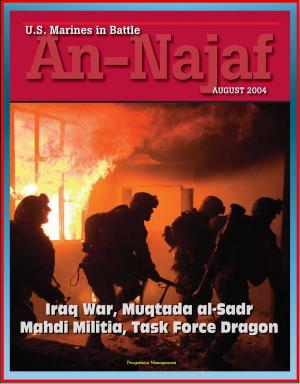21st Century U.S. Military Manuals: Military History Operations Field Manual - FM 1-20 (Value-Added Professional Format Series)
Nonfiction, History, Military, Social & Cultural Studies, Political Science| Author: | Progressive Management | ISBN: | 9781466131446 |
| Publisher: | Progressive Management | Publication: | September 15, 2011 |
| Imprint: | Smashwords Edition | Language: | English |
| Author: | Progressive Management |
| ISBN: | 9781466131446 |
| Publisher: | Progressive Management |
| Publication: | September 15, 2011 |
| Imprint: | Smashwords Edition |
| Language: | English |
Part of our value-added professional format series, the Military History Operations Field Manual (FM 1-20) is applicable to all Army military history offices, military history units, and military history operations of major tactical and support commands generally at corps level and below. FM 1-20 provides basic doctrine describing the roles, relationships, organizations, and responsibilities of Army component command historians, historians, unit historical officers, and military history detachment (MHD) members in the United States Army. It describes, but does not extensively cover, historians and historical offices of units at echelons above corps and at the joint level. It is designed to provide historians, unit historical officers, commanders, and staffs the methods to preserve and document the history of the U.S. Army. It explains how the Army conducts military history operations during wartime, for both deployed forces in the combat theater and those units supporting the operation. The Army has responded to numerous contingencies or military operations other than war in recent years, and this FM provides doctrine on conducting military history operations during such contingencies. It also provides commanders doctrinal guidance on the employment of organic military history assets as well as separate military history units.
The primary users of this manual are force commanders, military history professionals, soldiers assigned the additional duty of unit historical officer, and soldiers assigned to MHDs. The manual provides guidance derived from regulations and other sources and gives techniques for the execution of military history operations. It reflects lessons learned in past operations and theories tested at the combat training centers.
Military history is the collective memory of a unit or an entire armed force . Its use by units and individuals can teach valuable lessons from their recent past or provide unique insight into more distant times. This enhances unit performance and increases esprit de corps. The statement by philosopher George Santayana, "Those who do not learn from history are condemned to repeat it," has haunting implications in the profession of arms. General George S. Patton, Jr. ,stated, "To be a successful soldier, you must know history." A wise soldier learns from the past, both the successes and the failures. Military history is that link.
This field manual has been converted for accurate flowing-text e-book format reproduction.
As a bonus, this reproduction includes FM-1, The Army Field Manual, a capstone manual containing the vision for the Army - sold separately for $5.99. FM 1 establishes the fundamental principles for employing Landpower. The most important of these are the Army's operational concept and the fundamentals that support it. They form the foundation for all Army doctrine. All Soldiers should understand and internalize them. FM 1 describes the American profession of arms, the Army's place in it, and what it means to be a professional Soldier.
This is a privately authored news service and educational publication of Progressive Management.
Part of our value-added professional format series, the Military History Operations Field Manual (FM 1-20) is applicable to all Army military history offices, military history units, and military history operations of major tactical and support commands generally at corps level and below. FM 1-20 provides basic doctrine describing the roles, relationships, organizations, and responsibilities of Army component command historians, historians, unit historical officers, and military history detachment (MHD) members in the United States Army. It describes, but does not extensively cover, historians and historical offices of units at echelons above corps and at the joint level. It is designed to provide historians, unit historical officers, commanders, and staffs the methods to preserve and document the history of the U.S. Army. It explains how the Army conducts military history operations during wartime, for both deployed forces in the combat theater and those units supporting the operation. The Army has responded to numerous contingencies or military operations other than war in recent years, and this FM provides doctrine on conducting military history operations during such contingencies. It also provides commanders doctrinal guidance on the employment of organic military history assets as well as separate military history units.
The primary users of this manual are force commanders, military history professionals, soldiers assigned the additional duty of unit historical officer, and soldiers assigned to MHDs. The manual provides guidance derived from regulations and other sources and gives techniques for the execution of military history operations. It reflects lessons learned in past operations and theories tested at the combat training centers.
Military history is the collective memory of a unit or an entire armed force . Its use by units and individuals can teach valuable lessons from their recent past or provide unique insight into more distant times. This enhances unit performance and increases esprit de corps. The statement by philosopher George Santayana, "Those who do not learn from history are condemned to repeat it," has haunting implications in the profession of arms. General George S. Patton, Jr. ,stated, "To be a successful soldier, you must know history." A wise soldier learns from the past, both the successes and the failures. Military history is that link.
This field manual has been converted for accurate flowing-text e-book format reproduction.
As a bonus, this reproduction includes FM-1, The Army Field Manual, a capstone manual containing the vision for the Army - sold separately for $5.99. FM 1 establishes the fundamental principles for employing Landpower. The most important of these are the Army's operational concept and the fundamentals that support it. They form the foundation for all Army doctrine. All Soldiers should understand and internalize them. FM 1 describes the American profession of arms, the Army's place in it, and what it means to be a professional Soldier.
This is a privately authored news service and educational publication of Progressive Management.
